Ask the Doctor: Is taking an aspirin every day good for my heart health?
We posed this question to Madeline Mahowald, MD, a University of Florida assistant professor of medicine and a board-certified interventional cardiologist at…
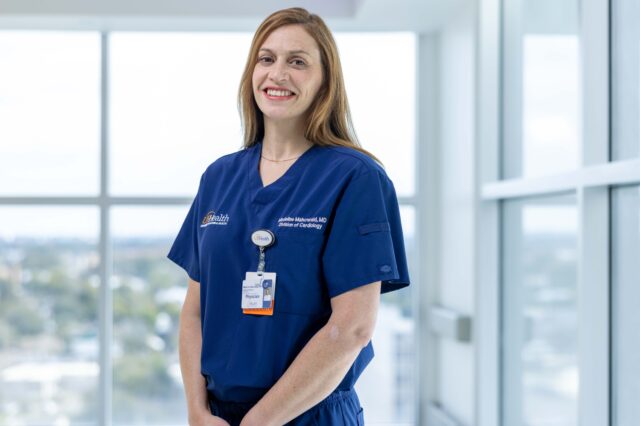
Update your location to show providers, locations, and services closest to you.
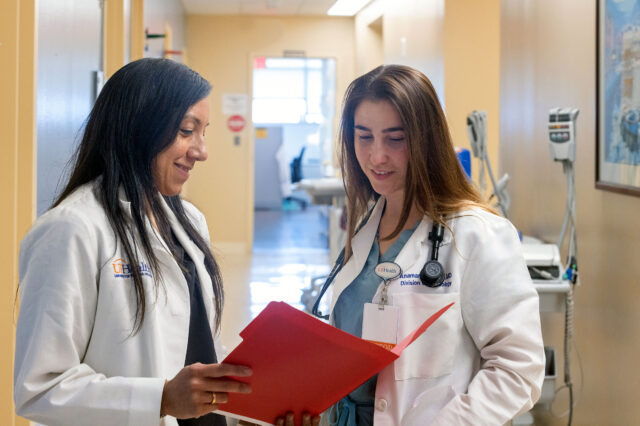
Heart disease is the leading killer of both men and women in the United States. However, for more than two decades, more women than men have died of heart disease annually. Women face unique challenges and have particular needs when it comes to cardiovascular health. One of the principal challenges is that the symptoms of heart disease in women can be very different from those in men.
The UF Health Women’s Cardiovascular Program is uniquely qualified in its dedication to the research, education and treatment of heart conditions affecting women. Using the most advanced diagnostic equipment and treatments available, our cardiologists work together to improve the quality of life for each patient we serve.
Although the overall mortality from heart disease in the U.S. has improved, one in four women die of heart disease in the U.S. each year.
Irrespective of age, when affected, women tend to have more complications, heart failure and hospital reentry with recurrent symptoms.
Most commonly, women develop a type of heart disease known as coronary artery disease (CAD), a condition in which the arteries narrow making it difficult for the heart to get sufficient blood supply. CAD is the leading cause of heart attacks, and while both men and women have heart attacks, women are affected at high rate.
The signs of a heart attack are often different for women as well, which may lead to a heart attack being unrecognized until it’s too late. The most common symptoms of heart attack in women are:
It is important to recognize symptoms right away. If you think you are having a heart attack, have someone take you to the hospital or call 911 immediately. Do not wait to see whether your symptoms go away.
Our team diagnoses and manages all aspects of women’s heart health, from early diagnosis, appropriate imaging, monitoring, and treatment, to interventional and non-interventional procedures, and to surgery and follow-up care.
With advanced technologies, access to the latest research and development, and perfecting of new techniques and treatments found only at a leading academic health center, patients find an unusually high number of services designed around the specific needs of cardiac care for women. These include:
Our personalized approach to heart care takes into consideration each woman’s personal and family medical histories, as well as demands of her life situation to determine the modes of care most appropriate for her best outcome.
Recent statistics paint a stark reality: Cardiovascular disease has become the leading cause of maternal mortality during the peripartum period. This sobering fact underscores the urgent need for a program dedicated to addressing the unique cardiovascular challenges faced by women as they navigate the journey of pregnancy and childbirth.
Women with cardiovascular disease who are pregnant or planning a pregnancy can now be referred to an innovative Cardio-OB program at UF Health Jacksonville for specialized care. To ensure the health and well-being of mother and baby, the program offers a multidisciplinary team with dedicated cardio-obstetrics providers. These experts work together to provide counseling, appropriate testing and medication management to reduce the risk of cardiac complications during pregnancy.
Learn more about the Cardio-OB Program.
As the region’s largest and most comprehensive cardiac care program for women, we offer more diagnosis and treatment options and more monitoring and continuing care than other facilities, which in many cases means better outcomes for cardiovascular patients.
Our ability to stay on the leading edge of what’s coming next in cardiovascular treatment and research means that each woman we serve receives the highest quality of care available in a truly individualized, women-centered approach.
Phone number:
(904) 244-9120Address:
580 West 8th Street
Phone number:
(904) 383-1011Address:
10475 Centurion Parkway North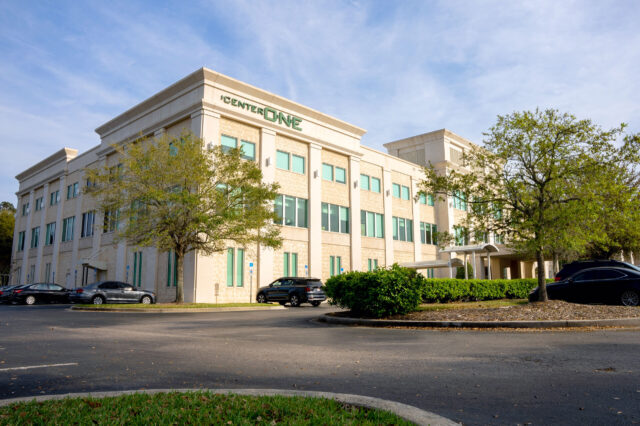
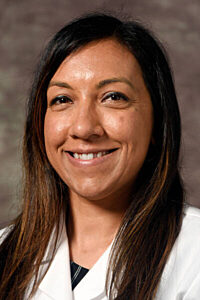
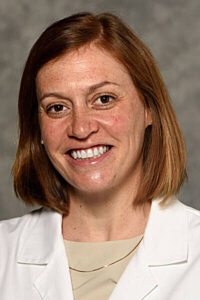
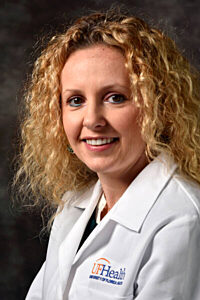
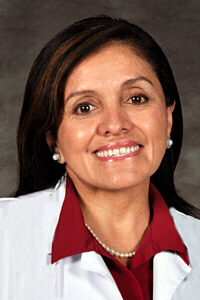
We posed this question to Madeline Mahowald, MD, a University of Florida assistant professor of medicine and a board-certified interventional cardiologist at…

There are several heart conditions that can affect women. It’s helpful to understand these, along with the occurrences and risks leading up to them.
